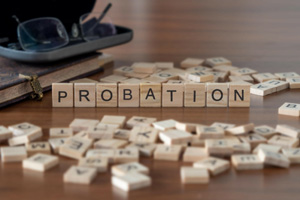
When facing criminal charges, you may receive a certain type of probation, depending on the circumstances of your case. The probation process can be quite complex since each state has its own policies, and every case requires different solutions. Due to probation’s complicated nature, you may want to contact our talented team of criminal defense attorneys at Rubin, Glickman, Steinberg & Gifford, P.C. to help you understand the types of probation and the conditions that come with them.
Our knowledgeable legal team has decades of experience to answer all your legal questions and ease any worries you may have about your probation. We are well-versed in Pennsylvania probation laws and policies and what each type of probation entails. If you have been accused of violating your probation, we may be able to help fight tirelessly for your rights and get your violations minimized or, in the best case, dropped.
What Is Probation in Pennsylvania?
Often, people think of parole and probation as the same, but that is not the case. According to the Pennsylvania Commission on Crime and Delinquency, parole is a release from prison after the defendant has served their minimum sentence and before they served their maximum sentence. However, not all prison sentences are eligible for parole.
On the other hand, probation allows the defendant to avoid jail time altogether. That said, those under probation still have to abide by the restrictions set for them. An exception to this is a split sentence, which occurs when someone serves jail time and gets probation when released.
While probation allows you to avoid incarceration, it does come with strict rules and requirements. For instance, you must avoid any other arrestable offenses while on probation and take routine drug tests. You must obey these rules to avoid violations, which could result in your probation being revoked.
What Are the Different Types of Pennsylvania Probation?
Depending on the severity of your charges and the circumstances surrounding your case, you may be assigned a specific probation classification. Pennsylvania has five different types of probation with varying supervision and conditions. These five types include the following:
Intensive Supervision Program
The intensive supervision program involves rigid requirements the offender must meet. Pennsylvania law states that those under this program must attend at least eight to 12 meetings with their probation officer every month. Offenders must also have 24/7 in-person and telephone contact with their officer.
Shock Probation
Shock probation is a hybrid program that requires the offender to serve a short prison or jail sentence before they get released on probation. As the name suggests, this time behind bars is meant to shock the offender into complying with the terms of their probation. Typically, the sentence lasts around 30 days, and the offender is placed under another type of probation. A violation of this type of probation may result in further jail time.
Community Control
Community control is the strictest type of probation as the offender serves a jail sentence outside of prison. Under this program, offenders must wear an ankle monitor equipped with 24/7 GPS tracking and cannot leave their homes. Those under this program may have to follow other guidelines set by the court.
Supervised Probation
Under the supervised probation program, offenders must report directly to their probation officer and meet with them weekly or monthly via telephone or in person. The court typically sets the terms for this type of probation. Offenders must also perform regular drug testing, attend counseling, and complete community service. Violating this type of probation may result in jail time.
Unsupervised Probation
Unlike supervised probation, offenders under this type of probation are not subject to direct supervision from their officers. However, they still have to follow the regulations set by the court, pay their fines, and avoid any arrestable offenses during their sentences. Unsupervised probation is typically reserved for low-risk offenders, but if they violate the terms of probation, they may receive a different type of probation or have their probation revoked.
Reach Out to a Pennsylvania Criminal Defense Attorney at Rubin, Glickman, Steinberg & Gifford, P.C.
If you have been accused of violating your probation, you may worry about how it will impact the rest of your sentence and your future. In these cases, you have the right to contact our award-winning criminal defense attorneys to help you fight for your rights and achieve a successful outcome.
At Rubin, Glickman, Steinberg & Gifford, P.C., we have over 65 years of experience handling Pennsylvania criminal defense cases. We have the skills and experience to handle every aspect of your case, from gathering evidence and interviewing witnesses to speaking with the judge and your probation officer. To schedule a free, confidential consultation, call us at (215) 822-7575 or fill out our contact form.










